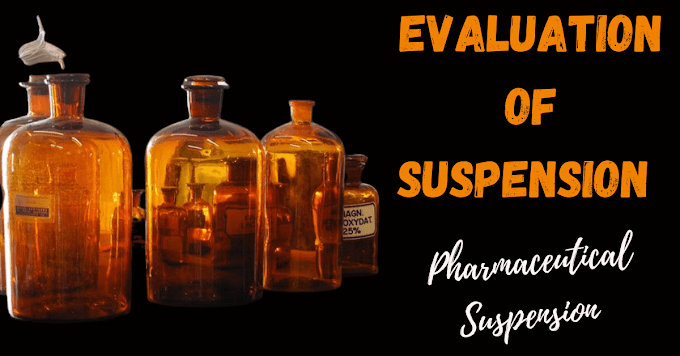More people are turning to dietary and herbal supplements than ever before. From turmeric capsules to green tea extracts and weight loss pills made from exotic roots, the market is booming. But experts are now warning that some of these popular natural supplements can lead to toxicity, liver damage, and even long-term organ failure.
Why People Trust Natural Supplements So Blindly
The supplement industry uses powerful marketing that promises energy boosts, better sleep, immune support, and fat-burning magic, all “the natural way.” These products often have labels like “organic,” “plant-based,” “clean,” and “chemical-free,” which make consumers feel safe.
However, natural doesn’t always mean harmless. Poison ivy is natural. So are arsenic and cyanide. Just because something comes from the Earth doesn’t mean your body can handle it in concentrated pill or powder form.
However, natural doesn’t always mean harmless. Poison ivy is natural. So are arsenic and cyanide. Just because something comes from the Earth doesn’t mean your body can handle it in concentrated pill or powder form.
The Alarming Rise of Supplement-Linked Liver Injuries
One of the most shocking side effects of some natural supplements is liver damage. Your liver processes everything that enters your body, including herbal compounds. When overloaded or exposed to toxic ingredients, it can become inflamed or damaged.Dr. Sudeep Khanna, a leading gastroenterologist, recently sounded the alarm about this issue. He explained that many herbal supplements are poorly regulated, which means there’s no guarantee about their ingredients or dosage. Some contain hidden steroids, harmful metals, or synthetic drugs disguised as natural.
In several reported cases, patients who regularly consumed supplements like ashwagandha, green tea extract, or kava developed hepatotoxicity, a condition where the liver becomes poisoned by chemical exposure.
Common “Natural” Supplements That Might Not Be So Safe
While not every supplement is dangerous, here are some that have raised red flags:
- Green Tea Extract: In high doses, this popular antioxidant can cause liver failure.
- Kava: Often used to reduce anxiety, but linked to serious liver toxicity.
- Comfrey: It is an old plant medicine that may actually harm your liver.
- Yohimbe: Marketed for sexual health but known to raise blood pressure and heart risks.
- Chaparral & Germander: Both of them have been connected to failure and inflammation of the liver.
Why Regulation Is a Problem
In many countries, including the U.S. and India, dietary supplements do not require FDA or regulatory approval before hitting the market. Unlike prescription drugs, supplements can be sold without proving their safety, quality, or effectiveness.Manufacturers are not required to test for contamination, proper dosage, or side effects. This means consumers are often in the dark about what they’re actually taking. Some brands may even include pharmaceutical drugs or dangerous chemicals to “enhance” the effects of their product, without disclosing it.
Signs That Your Supplement Might Be Hurting You
If you're taking natural supplements and notice the following symptoms, it’s time to stop and consult your doctor:- Fatigue or weakness
- Yellowing of skin or eyes (jaundice)
- Nausea or vomiting
- Dark urine
- Pain in the upper right abdomen
- Confusion or quick fluctuations in mood (in cases of acute liver damage)
Smart Tips for Safe Supplement Use
If you still want to take supplements, follow these tips to stay safe:1. Talk to Your Doctor: Always consult a healthcare provider before starting any supplement, especially if you’re on medications or have existing conditions.
2. Avoid Mega Doses: More is not better. Stick to recommended dosages.
3. Choose Trusted Brands: Buy from companies that have third-party testing or certifications.
4. Read the Ingredients: Avoid products with long lists of unfamiliar ingredients or hidden “proprietary blends.”
5. Be Wary of “Miracle” Claims: If it sounds too good to be true, it probably is.
How to Tell If a Supplement Is Truly Safe
Use these checkpoints before buying:- Is it certified by a third party like NSF, USP, or Consumer Lab?
- Does it have transparent labeling and clear dosage instructions?
- Are there peer-reviewed studies supporting its safety and effectiveness?
- Are side effects or warnings clearly listed?
Who Is Most at Risk?
Certain people are more vulnerable to side effects from supplements, including:
- People with liver or kidney disease
- The elderly
- Pregnant or breastfeeding women
- Children
- People on multiple medications (due to potential interactions)
Natural ≠ Safe: A Message Worth Sharing
It’s time to rethink our blind trust in natural products. The concept that "if it comes from nature, it must be safe" is harmful and out of date. While some supplements can help support wellness, others are powerful enough to damage vital organs. And the worst part? You may not know until it’s too late.Conclusion: Always Be Cautious with Natural Supplements
In conclusion, natural ≠ safe. That’s the hard truth. The shocking side effects of some natural supplements, especially liver damage, are real and increasingly common. Don’t gamble with your health for the promise of quick fixes or natural miracles. Make knowledgeable selections by reading labels and asking questions.If you’re serious about staying healthy, start with food, exercise, and trusted medical advice, not flashy labels and unchecked supplements.








0 Comments